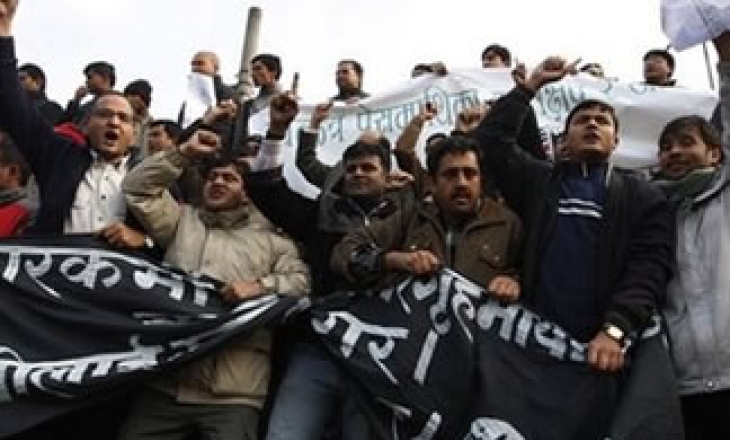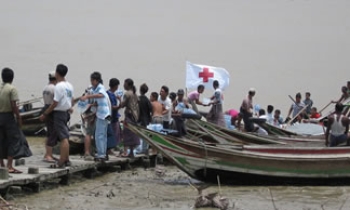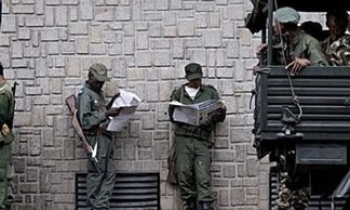More than 10 journalists were injured on Monday when the police tried to break up a rally taken out in capital Kathmandu by the Federation of Nepalese Journalists (FNJ) to protest Sunday's attack on Himalmedia by supporters of the Communist Party of Nepal (Maoist), the principal constituent of the ruling coalition in Nepal.
According to ekantipur.com, the police personnel at Maitighar Mandala, a rally-prohibited zone, snatched their banners and resorted to a baton charge after the journalists reached the area. FNJ secretary Ramji Dahal and some other journalists were injured in the scuffle that ensued. The police said they were compelled to use force after the journalists entered the prohibited zone.
The rally had been taken out to protest the attack on Himalmedia by the Maoist-affiliated All Nepal Hotel and Restaurant Labour Union on Sunday in which around a dozen staffers, including publisher Kunda Dixit and CEO Ashutosh Tiwari, were beaten up at the Hattiban-based office.
About 50 people are believed to have participated in the attack, including Maoist leaders who have been identified by eye-witnesses. This group forced its way into the Himalmedia premises and began assaulting staff members, while loudly proclaiming that this was in retaliation for material published in the group's papers about the Maoists' alleged misdeeds.
Current issues of Himalmedia publications—Nepali language daily Himal Khabarpatrika and English-language weekly Nepali Times—carry investigative stories about Maoist militants who have been threatening businesses and the media, according to the International Federation of Journalists (IFJ).
"This attack on Himalmedia is an attack on press freedom and has nothing to do with the defence of journalism or the public interest", said Jacqueline Park, director of IFJ Asia-Pacific. "We call upon the political leadership in Nepal, including the prime minister and the minister for information and broadcasting, to promptly denounce this act of vandalism and take personal responsibility for ensuring that the guilty are appropriately sanctioned," said Park.
IFJ said it was disturbed to learn that well-established procedures of registering unions within the journalists' community, were being shredded by a collusive arrangement between the labour minister in the newly sworn Republican Government of Nepal and vigilante groups that have emerged over the last decade of the Maoist insurgency.
"We call on all political parties in Nepal, and the wider civil society, to apply existing rules on the recognition of journalists' trade unions," said IFJ Asia-Pacific. "Any amendments to these rules should come from a broad process of consultation, rather than be forced upon one or the other side by mob action."










